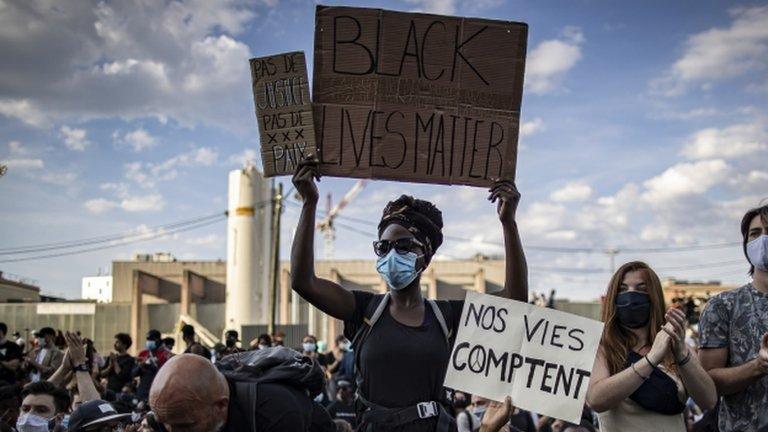Gérald Darmanin: Macron backs new interior minister accused of rape
- Published
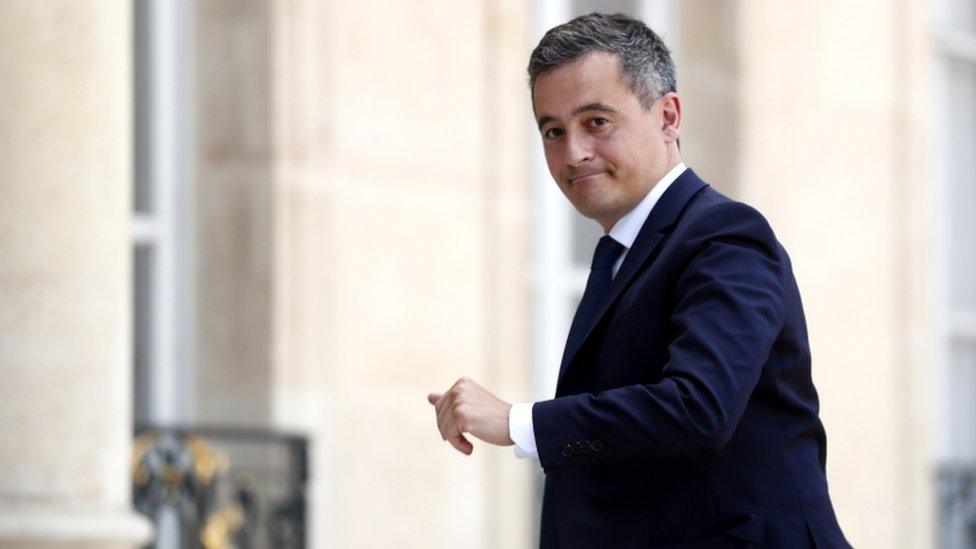
Gérald Darmanin was appointed interior minister on Monday
President Emmanuel Macron and his new government have defended choosing a man under investigation for alleged rape to lead France's interior ministry.
Gérald Darmanin firmly denies the accusation that he raped Sophie Patterson-Spatz in 2009 when she sought his legal help.
Mr Darmanin says they had consensual sex and has accused her of slander.
But his promotion caused shock and anger from feminist groups and government critics.
Mr Macron started a government reshuffle on Friday following dismal municipal election results for his party, La République En Marche (LREM).
Edouard Philippe resigned as prime minister the same day and was replaced by centre-right politician Jean Castex.
Hours later, a court launched an inquiry into the government's response to the coronavirus pandemic. The investigation focuses on three senior figures, including Mr Philippe, following complaints from unions and doctors.
The appointment of criminal defence lawyer Éric Dupond-Moretti as justice minister has also raised eyebrows in France. He has in the past defended Wikileaks founder Julian Assange.
Nicknamed the Acquittator - a mix of acquittal and Terminator - Mr Dupond-Moretti has reportedly won more than 120 acquittals for his clients, including a university professor accused of killing his wife and a man accused of ordering the assassination of a French politician in Corsica.
What is the accusation against Mr Darmanin?
Sophie Patterson-Spatz accuses the new interior minister of raping her in 2009, when she worked as a project manager in the legal affairs department of the centre-right UMP party.
At the time, Mr Darmanin was a local councillor in the north of France. Ms Patterson-Spatz said she felt pressured into sex by Mr Darmanin after asking for his help to lift a suspended sentence for blackmail.
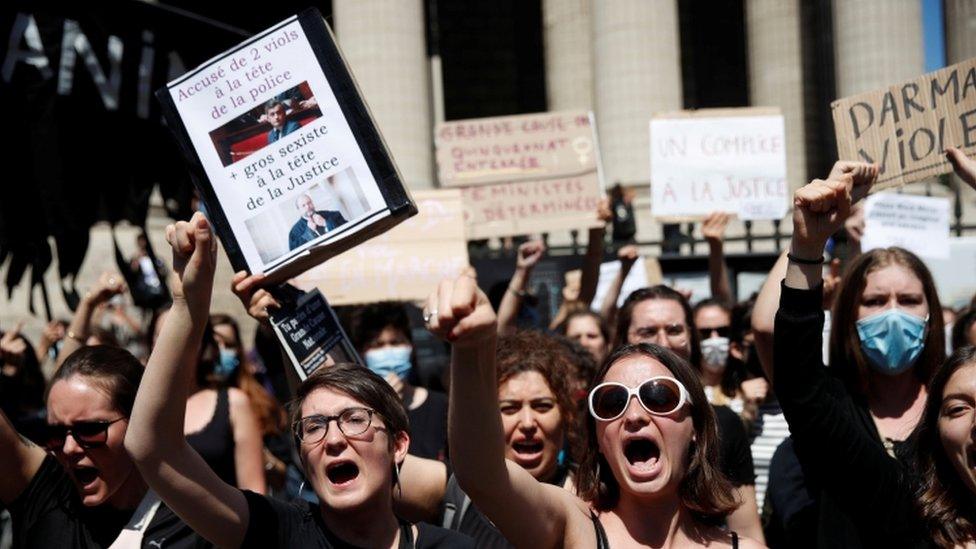
Demonstrators gathered outside the Madeleine Church in Paris to protest against the appointments on Tuesday
Officials began a preliminary investigation in 2017 when she came forward with the allegation, but it was closed after prosecutors said they could not establish an "absence of consent".
Mr Darmanin's lawyers, meanwhile, accused her of a "crude attempt to harm" him and said he was suing her for slander.
After a series of appeals and dismissals, last month an appeals court in Paris ordered prosecutors to reopen the probe.
"We find it hard to understand why today, in 2020, it took so long to simply be able to open a judicial inquiry," Ms Patterson-Spatz's lawyer Elodie Tuaillon-Hibon told Franceinfo.
Mr Darmanin has also in the past been accused of sexual harassment during his time as mayor of Tourcoing. An unnamed woman said he asked her for sexual favours between 2014 and 2017 in exchange for social housing - allegations he also strenuously denies.
What's been the reaction?
As head of the interior ministry, Mr Darmanin would technically oversee the people investigating the allegation against him.
"This appointment is a shock, I will not hide it," Ms Tuaillon-Hibon told Europe1 news on Tuesday. "We wonder what will happen when France's top cop is interrogated by a magistrate while he's in office."
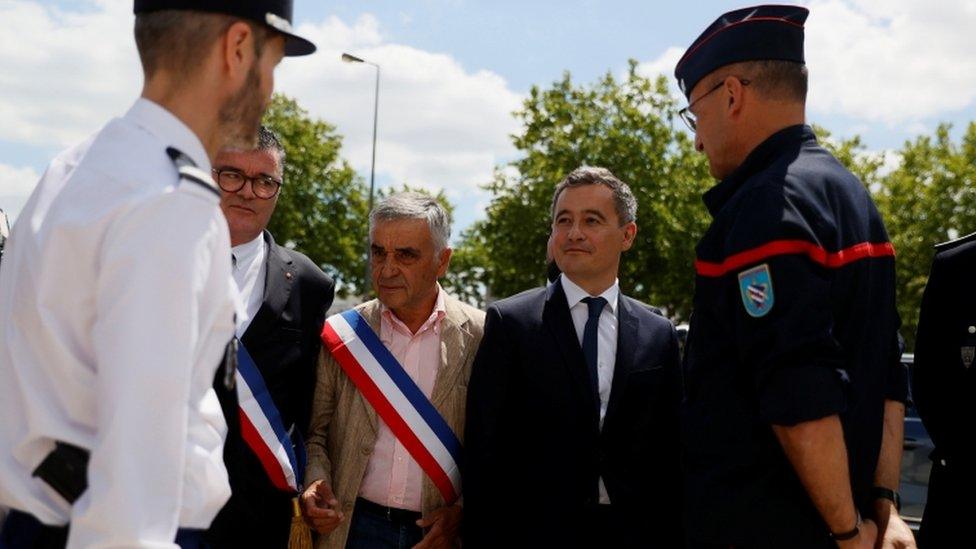
Mr Darmanin (right) visited the police headquarters of Les Mureaux outside Paris after his appointment
Feminist politician Caroline De Haas tweeted that the appointment was as though President Macron had "directly spat in the mouths of women victims of violence".
A source at the Élysée, however, said the accusation was "not an obstacle" and that the case appeared to be "heading in the right direction".
The new government spokesman, Gabriel Attal, said later that it was only fair that Mr Darmanin "benefits from the presumption of innocence" like everyone else in France.
And Mr Darmanin's predecessor at the interior ministry, Christophe Castaner, tweeted that he also had "full confidence" in him.
Earlier this year Mr Castaner banned the use of chokeholds in the wake of mass protests following the killing of African-American George Floyd. He later backed down following pressure from police unions.
There were clashes in Paris as police threw tear gas at protesters who hit them with stones
- Published16 February 2018
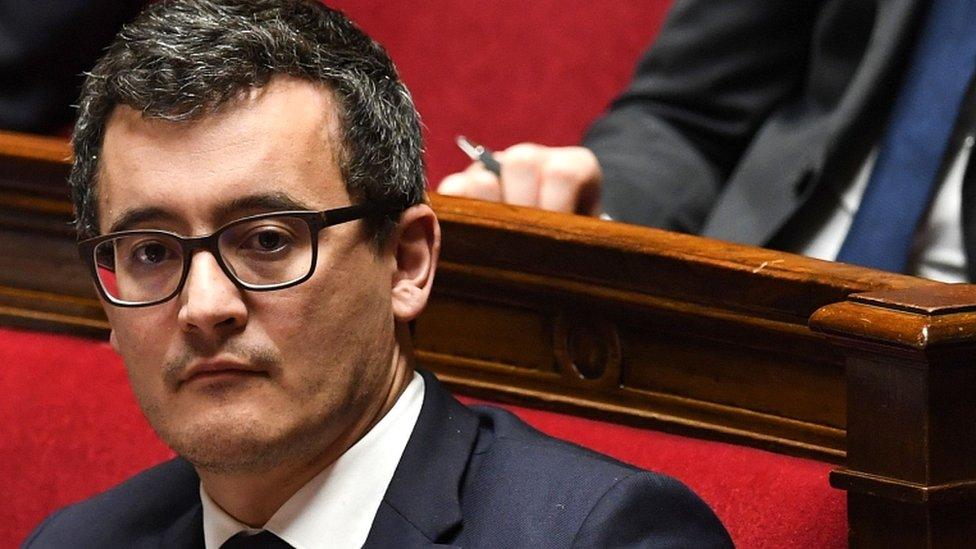
- Published3 July 2020
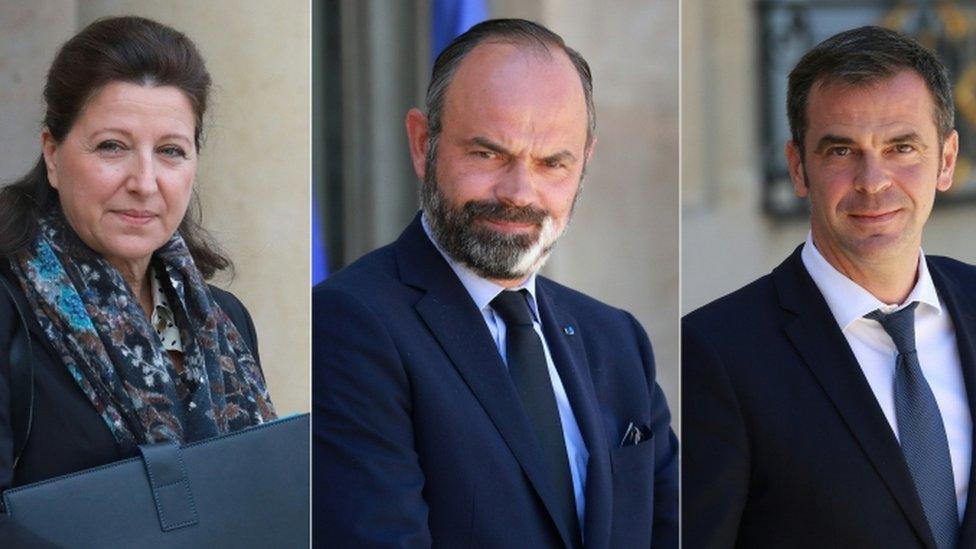
- Published16 June 2020
